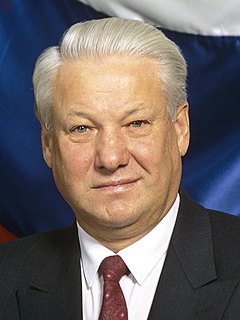Ein Zitat von Susan Sontag
Literatur war der Schlüssel zum Eintritt in ein größeres Leben; das heißt, die Zone der Freiheit. Literatur war Freiheit. Gerade in einer Zeit, in der die Werte des Lesens und der Innerlichkeit so stark in Frage gestellt werden, ist Literatur Freiheit.
Themen zitieren
Verwandte Zitate
Das Leben ist so gewöhnlich, dass sich die Literatur mit dem Außergewöhnlichen auseinandersetzen muss. Außergewöhnliches Talent, Macht, soziale Stellung, Reichtum ... Drama beginnt dort, wo Wahlfreiheit herrscht. Und die Wahlfreiheit beginnt, wenn soziale oder psychologische Bedingungen außergewöhnlich sind. Aus diesem Grund rekrutieren sich die Bewohner der fantasievollen Literatur seit jeher auf den Seiten des Who’s Who.
Wir sind entschlossen, die Glaubensfreiheit des Einzelnen zu schützen. Diese Freiheit muss sowohl das Kind als auch die Eltern einschließen. Die Freiheit, für die wir stehen, ist nicht die Freiheit des Glaubens nach Belieben, ... nicht die Freiheit, sich der Verantwortung zu entziehen, ... sondern die Freiheit, in Reden und Taten ehrlich zu sein, die Freiheit, die eigene Integrität des Denkens und Fühlens zu respektieren, die Freiheit, ... Fragen, zu erforschen, zu versuchen, das Leben und das Universum, in dem es reichlich Leben gibt, zu verstehen, die Freiheit, überall und überall zu suchen, um den Sinn des Seins zu finden, die Freiheit, mit neuen Lebensweisen zu experimentieren, die besser zu sein scheinen als die alten.
Wahre Freiheit wird in der permissiven Gesellschaft nicht gefördert, die Freiheit mit der Erlaubnis, alles zu tun, verwechselt und im Namen der Freiheit eine Art allgemeine Amoralität verkündet. Es ist eine Karikatur der Freiheit, zu behaupten, dass die Menschen ihr Leben ohne Rücksicht auf moralische Werte frei gestalten können und dass die Gesellschaft nicht für den Schutz und die Förderung ethischer Werte sorgen muss. Eine solche Haltung ist destruktiv für Freiheit und Frieden.
Für einen Schriftsteller ist die persönliche Freiheit nicht so wichtig. Es ist nicht die Freiheit des Einzelnen, die die Größe der Literatur garantiert; andernfalls wären Schriftsteller in demokratischen Ländern allen anderen überlegen. Einige der größten Schriftsteller schrieben unter der Diktatur – Shakespeare, Cervantes.
Literatur kann sich nicht zwischen den Kategorien „erlaubt“ – „nicht erlaubt“ – „das darfst du und das kannst du nicht“ entwickeln. Literatur, die nicht der Luft ihrer heutigen Gesellschaft entspricht, die es nicht wagt, rechtzeitig vor drohenden moralischen und sozialen Gefahren zu warnen, solche Literatur verdient den Namen Literatur nicht; es ist nur eine Fassade. Solche Literatur verliert das Vertrauen der eigenen Bevölkerung und ihre veröffentlichten Werke werden als Altpapier genutzt, anstatt gelesen zu werden. -Brief an den Vierten Nationalen Kongress der sowjetischen Schriftsteller
Amerika stellt sich selbst als das Land der Freiheit dar, aber die größte Freiheit, die Sie und ich haben, ist die Freiheit, am Arbeitsplatz eine unterwürfige Rolle zu übernehmen. Sobald Sie diese Freiheit ausüben, verlieren Sie jegliche Kontrolle darüber, was Sie tun, was produziert wird und wie es produziert wird. Und am Ende gehört das Produkt nicht Ihnen. Die einzige Möglichkeit, Chefs und Jobs zu vermeiden, besteht darin, sich nicht darum zu kümmern, seinen Lebensunterhalt zu verdienen. Was zur zweiten Freiheit führt: der Freiheit zu verhungern.
Ich denke oft gerne, dass unsere Weltkarte falsch ist, dass wir dort, wo wir die Physik in den Mittelpunkt gestellt haben, eigentlich die Literatur als zentrale Metapher platzieren sollten, auf der wir aufbauen wollen. Weil ich denke, dass Literatur zum Leben die gleiche Beziehung einnimmt wie das Leben zum Tod. Ein Buch ist ein Leben, aus dem eine Dimension herausgeholt wurde. Und das Leben ist etwas, dem die Dimension fehlt, die ihm der Tod verleihen würde. Ich stelle mir den Tod als eine Art Freilassung in die Fantasie vor, in dem Sinne, dass wir für die Charaktere in einem Buch eine unvorstellbare Dimension der Freiheit erleben.

































